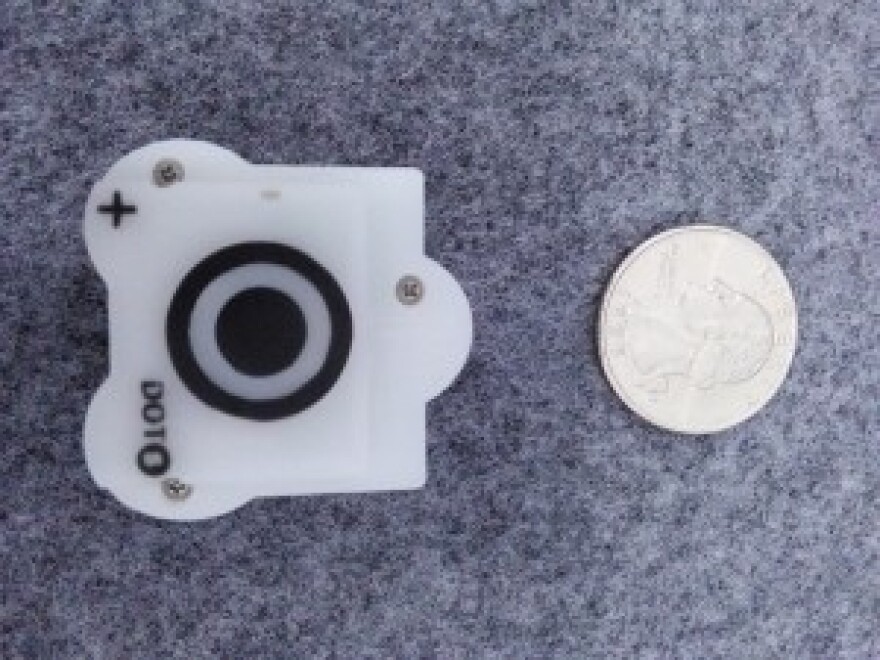Ten young companies from across the world snagged a spot in the 2015 class of Health Wildcatters. Some entrepreneurs have developed products – one for reducing the risk of stroke, another for easy eye exams – others, health services – like fast access to specialists through telemedicine and bilingual wellness programs for employers. Each company gets $35,000 in seed money and space to work for three months.
If you want to get a peek at the future of health care, take the elevator up to the second floor of 211 Ervay Street in Dallas. Walk past the ping pong and Foosball tables, towards the little wooden stage in the back. This is where entrepreneurs learn to sell their dreams.
And learn to take suggestions.
“In the first few weeks, a lot of dreams get broken,” says Hubert Zajicek. “A lot of assumptions turn out to be not right, a lot of business models get re-hashed.”
Zajicek is CEO and co-founder of Health Wildcatters. This is the third year he’s helped coach startups through a grueling twelve week process that culminates with a pitch event in front of real investors. The first two classes, with 22 companies total, have raised more than $10 million dollars. That might sound like a lot, but the process of testing, getting approval for and distributing a new medical device is costly.

Flexing New Muscles
Maria Schneider and her team have created a device called Flexdot. It’s a small piece of equipment that you can stick on the surface of your skin to measure if you’re flexing a specific muscle — and how much. That information can be connected to games (so a patient could get points each time a correct movement is made) and sent to physical therapists.
“I have a little boy with cerebral palsy and we have gone through years of physical therapy,” Schneider says. “I’ve had a chance to observe that PT really only works when the patient is engaged and continuing what happens at home.”
There are two things that stand out with this year’s class of health wildcatters – the number of women, and the number working on medical devices. Half of the startups are led by women, and half the companies are creating medical devices. Co-founder Zajicek says all the CEOs are searching for solutions to health care problems.
“Whether you’re in healthcare or not you can’t help but come to pitch day and see these people putting their dreams out there and pursuing them and not be inspired by them.”
Pitch Day is November 12th at the Majestic Theater.

The 2015 Class
Codedgi – automatic coding software for clinical notes and electronic health record (EHR) documentation
DUALAMS – a system that delivers nebulized agents prior to laryngoscopic examinations to eliminate the common discomfort and complications that occur
Dynofit (AKA Flexdot) – a wireless smart electromyography system that helps people with stroke, traumatic brain injury and cerebral palsy gain control of their muscles
Exhale Healthcare Advocates – a company that helps consumers manage the business of their healthcare, described as “the H&R Block of healthcare”
Flow MedTech – developing a patent-protected medical device to reduce the high risk of stroke in millions of atrial fibrillation patients
Insight Optics – using mobile imaging technology to allow primary care physicians to record fundus examinations—a critical tool in preventative and diagnostic healthcare—and forward results to ophthalmologists for review
md Portal – a healthcare software company with an asynchronous telemedicine platform that allows patients to see a physician remotely using tailored questionnaires and photos
Noninvasix – developed a way to conduct accurate, noninvasive monitoring of fetal welfare during labor and delivery using optoacoustic technology from the exam
Obaa – a company that is enabling primary care physicians to connect with specialists during patient encounters using Google Glass technology
Vidas Sanas – a Healthy Lives Platform that provides unique bilingual wellness solutions for employers and healthcare providers to engage their Latino populations into behavior change that transforms their health and well-being






